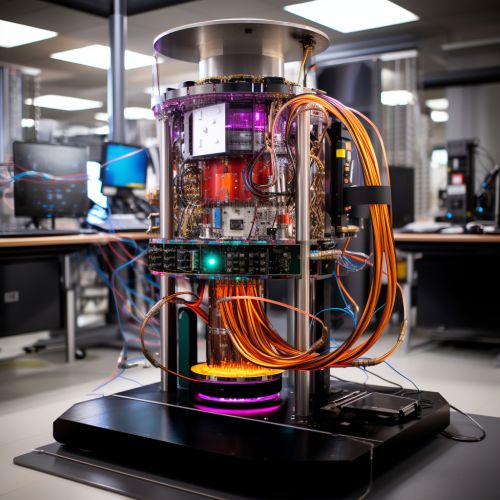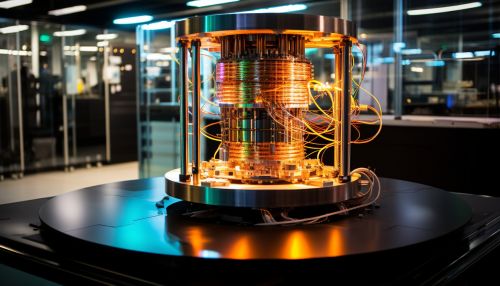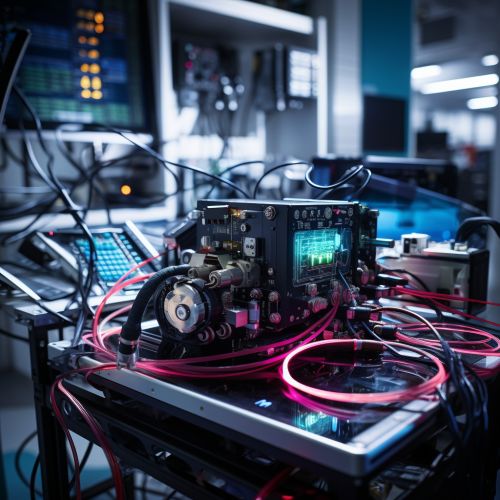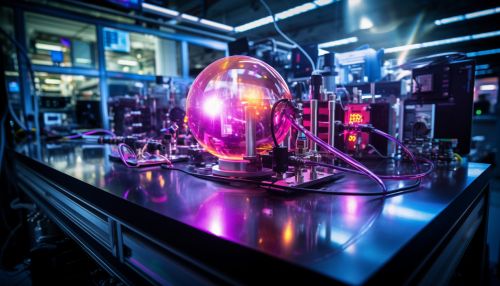Advances in Quantum Computing with Quantum Interfaces
Introduction
Quantum computing is a rapidly evolving field that leverages the principles of quantum mechanics to process information. The development of quantum interfaces, which allow for the transfer of quantum information between different systems, has been a significant advancement in this field. Quantum interfaces are crucial for building scalable quantum computers and quantum networks, which are expected to revolutionize various sectors, including cryptography, material science, and artificial intelligence cryptography, material science, and artificial intelligence.


Quantum Computing
Quantum computing differs significantly from classical computing, which is based on bits. In classical computing, bits can exist in one of two states: 0 or 1. Quantum computing, on the other hand, uses quantum bits or qubits. Qubits can exist in a superposition of states, meaning they can be in multiple states at once. This property, along with entanglement and quantum interference, allows quantum computers to process vast amounts of data simultaneously, potentially solving complex problems that are currently intractable for classical computers entanglement and quantum interference.
Quantum Interfaces
Quantum interfaces are devices that enable the transfer of quantum information between different physical systems. They are a critical component in the development of quantum networks and scalable quantum computers. Quantum interfaces can be used to connect different types of quantum systems, such as superconducting circuits and trapped ions, allowing for hybrid quantum systems that leverage the strengths of different quantum technologies.
Advances in Quantum Interfaces
Recent advances in quantum interfaces have focused on improving the fidelity of quantum information transfer, increasing the distance over which quantum information can be transferred, and developing interfaces that can connect different types of quantum systems.
Fidelity of Quantum Information Transfer
The fidelity of quantum information transfer refers to the accuracy with which quantum information can be transferred between systems. High fidelity is crucial for quantum computing, as errors in quantum information transfer can lead to incorrect results. Recent advances have significantly improved the fidelity of quantum information transfer, with some systems now achieving fidelities exceeding 99%.
Distance of Quantum Information Transfer
The distance over which quantum information can be transferred is another important factor in the development of quantum networks and scalable quantum computers. Recent advances have seen the development of quantum interfaces capable of transferring quantum information over distances of several kilometers, a significant improvement over previous capabilities.
Hybrid Quantum Systems
The development of quantum interfaces that can connect different types of quantum systems, known as hybrid quantum systems, is a significant recent advance. Hybrid quantum systems allow for the combination of different quantum technologies, each with their unique strengths. For example, superconducting circuits are excellent at processing quantum information, while trapped ions are excellent at storing quantum information. By connecting these systems with a quantum interface, it is possible to create a hybrid quantum system that can both process and store quantum information efficiently.
Future Directions
The field of quantum computing with quantum interfaces is still in its early stages, and there are many exciting potential directions for future research. These include the development of quantum interfaces capable of transferring quantum information over even greater distances, improving the fidelity of quantum information transfer, and exploring new types of hybrid quantum systems. The continued advancement of quantum interfaces will be crucial for realizing the full potential of quantum computing.


